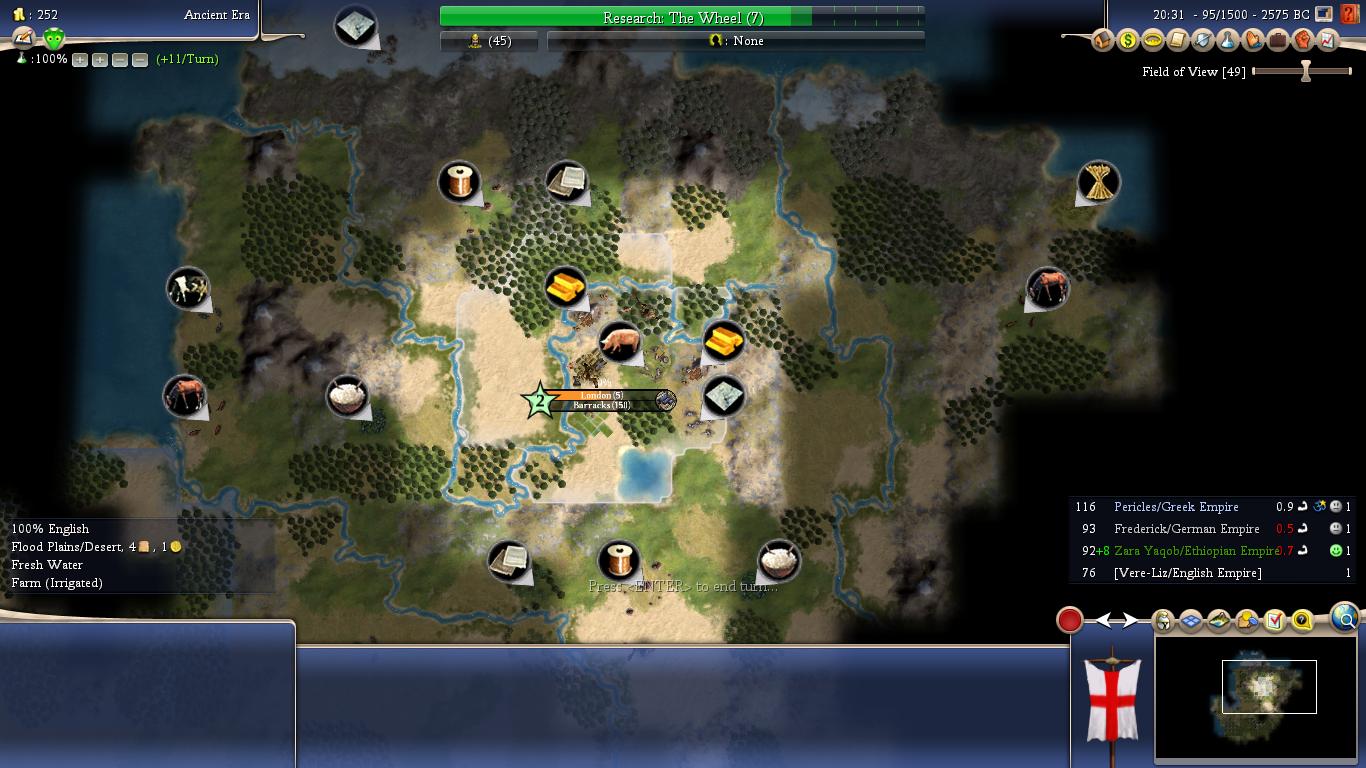vulcan25
Chieftain
- Joined
- Jun 29, 2014
- Messages
- 2
So I've played a few games at Prince, but not yet won, though I've never made it far past the medieval stages before I decided to start over after my mistakes catch up to me. I'm trying to be much more careful about my early moves.
Anyway I just started this game, Elizabeth, large pangaea map, low sea level, no random events or espionage as both create too many random variables that bother me, and I terrible luck with them. Right now I want some advice on where to settle my second city.
This is the land I have uncovered so far. My first warrior was killed before he could uncover the rest of the SE. My nearest neighbor that's visible so far is Pericles to the SW. I have BW so I'm trying to settle my second city but I'm not sure where to place it.
Those are the two locations I'm considering.
I do have a second copper nearby but I don't like the location, specially since I think I should be expanding in the other direction.
Where should I settle? I want the copper and I think the better location is on the desert to get the rice and copper, it gets one flood plain but misses out on both silks.
I expect that I will stumble my way through this game and a few others before winning so I don't necessarily want a huge detailed plan. I think I will learn better if I make some mistakes, but this is something that is very crucial and I'm indecisive about.
Anyway I just started this game, Elizabeth, large pangaea map, low sea level, no random events or espionage as both create too many random variables that bother me, and I terrible luck with them. Right now I want some advice on where to settle my second city.
I do have a second copper nearby but I don't like the location, specially since I think I should be expanding in the other direction.
Where should I settle? I want the copper and I think the better location is on the desert to get the rice and copper, it gets one flood plain but misses out on both silks.
I expect that I will stumble my way through this game and a few others before winning so I don't necessarily want a huge detailed plan. I think I will learn better if I make some mistakes, but this is something that is very crucial and I'm indecisive about.









